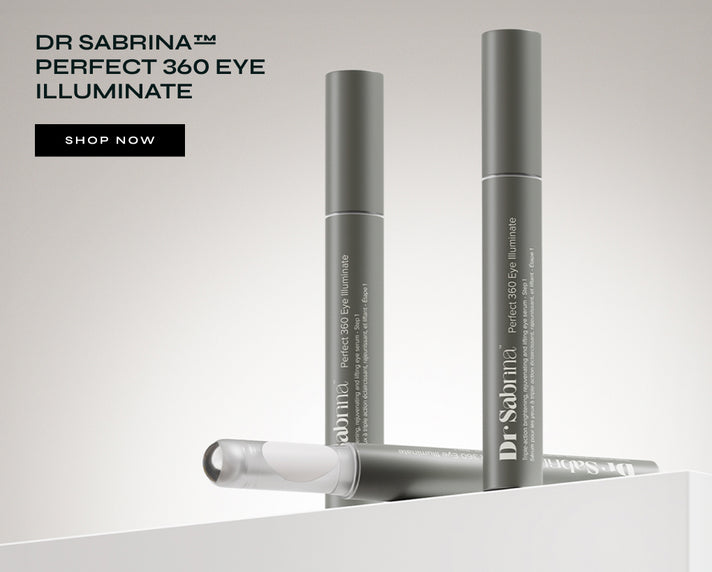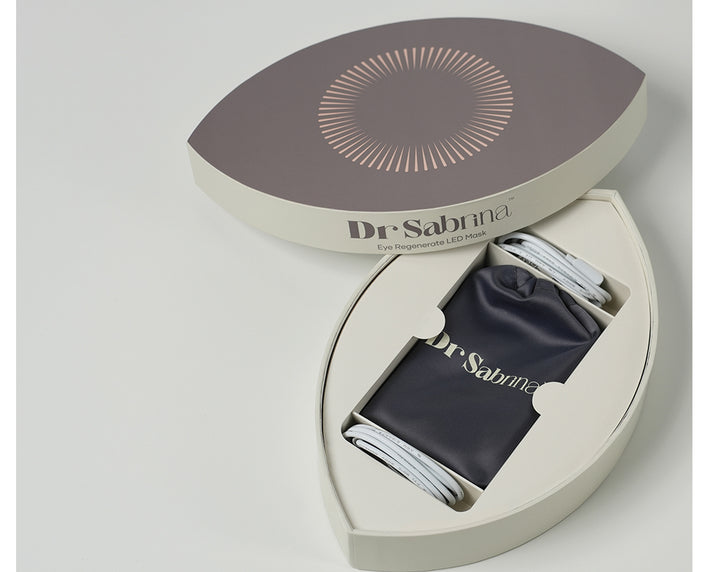Dark Circle
Toner vs Serum: What's the Difference?

When it comes to skin care, the number of products can be daunting. Two of the most sought-after products are toners and serums, both of which provide distinct benefits for the skin. But many of us always ask ourselves: Toner vs serum: What's the difference?
Although both products are necessary for a skin care routine, knowing the difference between toner and serum is the key to getting the most out of your skin care regimen. Let's get into the differences, applications, and advantages of each to better explain how they can work together.
What Is Toner?
A toner is a water-based skincare product that is meant to equalise the pH levels of the skin and prepare it for further skincare treatments. Toner vs serum: How are they different in terms of their composition?
Toners tend to be light and watery, with a range of ingredients such as moisturising agents, antioxidants, and exfoliants. Historically, toners were applied after cleansing to strip the skin of any lingering dirt or oil, but contemporary formulations provide much more.
What Does Toner Do For Your Face?
Many people ask - what does toner do for your face? The primary function of a toner is to regulate the skin after washing. It restores the skin's natural pH, which is usually disrupted in the process of washing. Toners are also usually designed with certain ingredients that address particular skin issues, including acne, dryness, or irritation. For example, if your skin feels slightly tight or dry after washing, a moisturising toner can restore moisture and smoothness.
Certain toners also contain exfoliating agents such as alpha hydroxy acids (AHAs) or beta hydroxy acids (BHAs), which act to lightly exfoliate the skin, shedding dead skin cells and encouraging cell turnover. This makes your skin feel clean and refreshed.
Toners come in a range of formulations based on your skin type. For instance, oily or acne-prone skin might use a toner with salicylic acid or witch hazel, while sensitive skin could use alcohol-free soothing formulas with aloe vera or chamomile.
Where Do Toner and Serum Fit in Your Routine?
- Step 1: Cleanser
- Step 2: Toner
- Step 3: Serum
- Step 4: Moisturizer
- Step 5: Sunscreen (AM)
What Is Serum?
Serums are extremely concentrated skincare items loaded with active ingredients meant to address particular skin issues. While toners tend to be applied to balance the skin, serum vs toner products aim to provide deep treatment for wrinkles, dark spots, and dryness.
A serum is generally thicker and more viscous compared to a toner and may have ingredients like vitamins, antioxidants, peptides, and hyaluronic acid. Such ingredients are generally designed to penetrate deeper into the skin, offering more concentrated solutions than toners. Due to their concentration, serums tend to be applied after toners in order to deliver maximum benefits.
Serum vs Toner: Major Differences
|
Feature |
Toner |
Serum |
|
Main Purpose |
Balances pH, preps skin |
Targets specific concerns |
|
Texture |
Watery |
Gel or light oil |
|
Use After |
Cleansing |
Toner |
|
Key Ingredients |
Witch hazel, rose water |
Hyaluronic acid, peptides |
|
Skin Concern |
Oil control, hydration |
Anti-aging, pigmentation |
Although both toners and serums are a crucial part of a skincare regimen, their applications and functions are quite different. The main difference between serum and toner is in their composition and how they act on the skin.
1. Purpose:
Toners are formulated to restore the pH balance of the skin, erase residue of makeup, and prime the skin for the next products in your skincare routine. Serums, however, are treatment-oriented and formulated to bring active, concentrated ingredients to specific skin issues.
2. Texture and Application:
Toners are usually lighter and liquid-based, and they are used after washing and before moisturising. Serums are thicker and more concentrated and are usually used after toners and before moisturising to treat skin problems at a deeper level.
3. Active Ingredients:
Toners do include ingredients such as witch hazel, aloe vera, or acids, but they are essentially concerned with calming, equalizing, or removing dead skin cells. Serums, however, have greater concentrations of ingredients such as Vitamin C, retinol, peptides, and hyaluronic acid aimed at addressing particular issues like wrinkles, dark spots, and moisture.
4. Frequency of Use:
The majority of toners may be used every day, both in the morning and night, while serums are applied at night or when you want to address a specific concern.
Difference Between Face Serum and Toner
Where the face serum differs from toner is in how noticeable it is, specifically in ingredients and their function. Serums tend to be used for specific skin problems. You may use one containing Vitamin C or retinol if you're experiencing fine lines or hyperpigmentation, for instance.
Toners, however, are more of a prepping and balancing act for your skin before applying the other products behind it. They're not generally used to heal or correct a particular problem with your skin, but serve to provide a clean, smooth canvas for the more specifically targeted treatments that come after.
Eye Serum Benefits
span>Eye serums, a type of serum, are specifically designed to treat issues surrounding the sensitive eye area. The eye serum benefits are profound: they reduce puffiness, dark circles, and fine lines around the eyes. Eye serums are often packed with caffeine, peptides, and antioxidants that target these issues directly.
If dark circles are a concern, an eye serum can help hydrate the under-eye area while improving circulation, which can reduce the appearance of tired eyes. When combined with a good moisturizer, the right eye serum can provide long-lasting effects and brighten the eye area, giving your face a more rested and youthful look.
Dark Circle Corrector
For people having dark circles, the right dark circle corrector is a must. These treatments are specially formulated to include ingredients such as caffeine, hyaluronic acid, and Vitamin K, which diminish the look of dark circles and puffiness. The dark circle corrector function is based on enhancing blood flow and eliminating the pigmentation of the eyes.
While eye creams are usually included in the fix, others still prefer to make use of the specialized dark circle correctors, which are created to deal specifically with these conditions. Regular usage can lead to noticeably brighter, less tired-looking eyes.
Conclusion
The debate Toner vs serum: What's the difference is settled if you understand that both products are necessary but different in function. Toner or serum is not a matter of either/or but rather how you combine them as part of your skincare regimen. Toners are designed to prime and balance the skin, and serums give your skin the focused, penetrating treatment it needs for specific issues. Knowing toner and serum apart allows you to develop an individualised skincare routine that serves your skin best.
Whether you're attempting to tackle dark spots, fine lines, or dry skin, understanding how to use both toners and serums can result in smoother, healthier, and brighter skin. So the next time you're standing before your skincare cabinet, keep in mind the key differences between serum vs toner and utilise them simultaneously for the most benefits.
FAQs: Toner vs Serum
1. What does toner do for your face?
A toner balances your skin's pH, erases any remaining dirt, and prepares your skin to receive moisturisers and serums, giving you a clean and smooth canvas.
2. Toner vs. serum: what's the difference?
Toners prepare and balance the skin, while serums have concentrated active ingredients that target specific skin issues, like wrinkles or dark spots.
3. Can I use toner and serum at the same time?
Yes! Serums and toners can both be used in a skincare regimen. Apply toner first to even out the skin, and then follow up with a serum to address particular skin concerns.
4. What are the benefits of an eye serum?
Eye serums are formulated specifically to combat puffiness, dark circles, and fine lines around the eyes, leaving the skin under your eyes hydrated and rejuvenated.
5. How do I apply a dark circle corrector?
Use a dark circle corrector below your eyes after washing and toning, spreading it delicately to help decrease puffiness and fade dark circles with consistent use.









